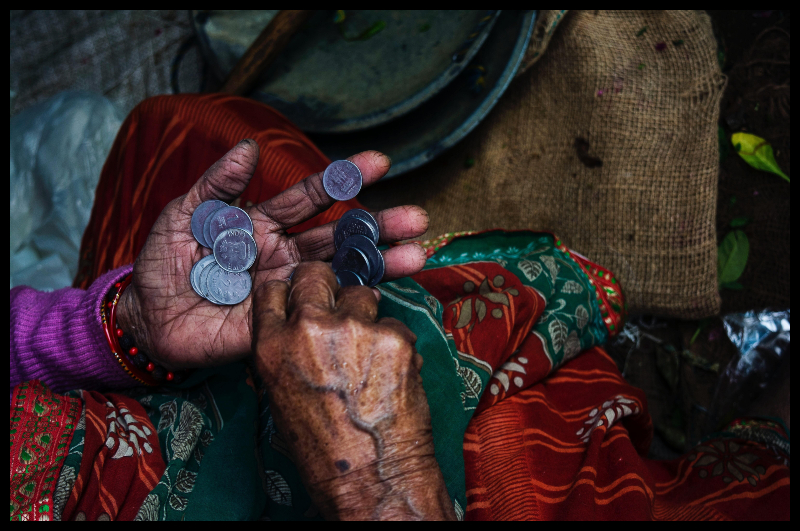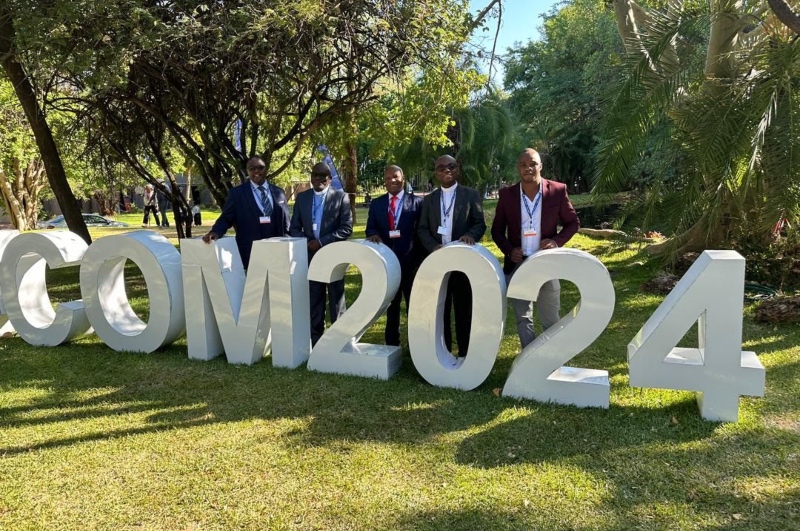

JENA, through its affiliate member organisation, the Zimbabwe-based Jesuit NGO, Silveira House, met with the Budget, Finance and Economic Development Committee of the Zimbabwean Parliament in Harare to discuss some of the best ways African countries like Zimbabwe could employ to fully benefit from the recent Special Drawing Rights (SDRs) allocation.
Silveira House was playing its role to provide CSOs support for capacity building of Parliamentarians and the parliamentary secretariat. The Budget, Finance and Economic Development Committee itself is an important parliamentary committee, with oversight on the Ministry of Finance and Economic Development and the various parastatals that fall within the ministry.
A Relief and Help: A Free Lunch?
The allocation of USD 650 billion worth of SDRs in August 2021 by the IMF to the world’s economies is a major multilateral breakthrough and laudable international action to bridge the financing gap of many countries including Zimbabwe in the aftermath of the COVID-19 crisis. Even though Sub-Saharan African countries have received the smallest SDR allocation – amounting to a paltry 3.7% of the total allocation to Sub-Saharan Africa – compared to what has gone to rich countries who do not even need them, this unconditional SDR allocation is in many ways a ‘free lunch’. The Director of the Budget Office at Parliament of Zimbabwe Mr. Pepukai Chivore noted during the meeting that the allocation was so significant that it constitutes 20% of Zimbabwe’s exports and 10% of its external debt. It has been noted elsewhere that the new SDR allocation has raised Zimbabwe’s foreign-exchange reserves by more than six times. It provides much-needed breathing space for Zimbabwe’s balance sheets in proportion to its existing quotas in the Fund. The allocation will also act as a financial multiplier, increasing the fiscal space in the short term and fortifying prospects for financial security. SDRs will help finance essential imports such as COVID-19 vaccines.
While the allocation is far from being sufficient, it will still make a difference. So, how it is used matters a lot for a country like Zimbabwe. According to the World Bank’s analysis published in June 2021, in Zimbabwe, the COVID-19 pandemic and its impacts have disrupted livelihoods, expanding the number of extremely poor citizens by 1.3 million, and increasing extreme poverty overall to 49% in 2020. The pandemic has further disrupted the provision of basic public services in health, education and social protection, which were already strained prior to the pandemic, hitting poor citizens hardest.
The Promise
In August 2021, Zimbabwe received SDR 677.4 million amounting to USD 961 million. Subsequently, the Ministry of Finance and Economic Development issued a statement confirming receipt of the funds and pledging that “the funds will be used prudently, with utmost accountability, to support the social sectors namely health, education, and the vulnerable groups; productive sectors that include industry, agriculture and mining; infrastructure investment covering roads and housing; and foreign currency reserves and contingency fund, to support our domestic currency and macro-economic stability.” This is a highly commendable commitment.
Implementation: The Role of Good Governance
Many countries in the global South like Zimbabwe, are not short of good plans, policies and commitments around poverty reduction and development. Their failure usually is weak follow-up and lack of – or poor – implementation of plans on account of weak governance institutions. Thus, it is worthwhile for the Parliament, media, citizens, civil society groups and other relevant groups to track the commitment of the Zimbabwean government to supporting the country’s post-COVID-19 recovery. How has Zimbabwe, as a vulnerable country, used its SDR allocation thus far? What potential does Zimbabwe see for accountable and effective use of this allocation?
Despite the promise, the Zimbabwe Ministry of Finance is yet to publicly show its commitment to fulfilling the promise. The Ministry is yet to share information about how it is using the funds or even how it intends to use them. For that reason, the Parliament has summoned the Minister of Finance to explain before the House how the SDR resources have been used so far. But the meeting heard that the parliament itself in general, and the Committee in particular, are so ill-equipped to deal with the matter given that they lack access to information about government receipts and expenditures. They also lack other necessary tools to effectively play a meaningful monitoring role.
Other challenges that weaken parliamentary oversight in Zimbabwe that were highlighted include the abuse of the government parliamentary whipping role that weighs down on the ruling MPs’ oversight role. MPs are frequently coerced to toe the party line or position. In addition, the fear of ‘punishment’, which includes possible dismissal or transfer also extends to public officials if they performed their roles, even though professionally, in ways that would make the government unpopular. All this, the meeting heard, breeds a patronage system that completely weakens parliamentary oversight. The Zimbabwean citizens themselves and civil society groups are in the dark about what is going on and are therefore unable to provide the necessary checks and balances. Therefore, there is not an effective public consultation process about SDR allocation and use in Zimbabwe.
Studies on the macroeconomic impacts of governance show that the beneficial effect of financial and other resources like SDRs on economic performance can only be maintained and endure when those resources are well-managed in through good governance supported by good institutions. Governance determines the distribution of resources and benefits within the economy. To throw light on our discussion here on SDRs and Zimbabwe, we use the World Bank’s Worldwide Governance Indicators (WGI), which are aggregate and individual governance indicators for over 200 countries and territories including Zimbabwe over the period 1996–2020, for six dimensions of governance:
1. Voice and Accountability
2. Political Stability and Absence of Violence/Terrorism
3. Government Effectiveness
4. Regulatory Quality
5. Rule of Law
6. Control of Corruption
These aggregate indicators combine the views of a large number of enterprises, citizen and expert survey respondents in industrial and developing countries. They are based on over 30 individual data sources produced by a variety of survey institutes, think tanks, non-governmental organisations, international organizations, and private sector firms.
How has Zimbabwe Faired?
World Governance Indictors (WGI) range between -2.5 and +2.5, with higher scores representing better levels of the indicator. The indicators for Zimbabwe are extremely dismal over a period of almost 20 years, from Dec 1996 to 2017. In terms of voice and accountability, estimate data was reported at -1.202 NA in 2017. The highest the data on voice and accountability has ever reached was still below zero at -0.612 NA in 1996 with a record low of -1.675 NA in 2005. Estimate data for Political Stability and Absence of Violence/Terrorism was reported at -0.774 NA in 2017. Government Effectiveness estimate data was reported at -1.191 NA in 2017 showing a decrease from the previous number of -1.158 NA for 2016. The data reached a record low of -1.546 NA in 2009. In regard to Regulatory Quality, Zimbabwe still performed poorly. Estimate data averaged a low of -1.933 NA from Dec 1996 to 2017, with 19 observations. The data reached a record low of -2.236 NA in 2005. For the rule of law estimate data averaged -1.630 NA from Dec 1996 to 2017, with 19 observations having scored a record low of -1.852 NA in 2009 while the estimate data for Regulatory Quality equally showed a dismal performance averaging -1.933 NA from Dec 1996 to 2017.
Conclusions and Recommendations
Resources like SDRs are not a magic wand for Zimbabwe and the rest of Africa. If Zimbabwe and other African countries are to ensure a robust and equitable recovery, there must be commitment to good governance and to ensuring the presence of quality institutions of governance. Institutional reforms and strengthening are priorities which should not be overlooked especially in ensuring the independence and adequate funding of the justice system and law-enforcement agencies in order to empower them to stamp out corruption and promote the rule of law.
The meeting resolved to advance continuous engagement, collaboration and capacity building. Silveira House must be commended for supporting the capacity building of the parliamentary committee on finances. The need to use evidence as a means to exercise accountability should be emphasized. Some good entry points for enhancing parliamentary and civil society’s watchdog role in public affairs in the Zimbabwean law were identified. They include the right to petition: Sections 117, 119, 149 of the Zimbabwean Constitution, SO 186 NA, Appendix D of the Standing Rules allow for a formal request made to Parliament by citizens or permanent residents calling Parliament to exercise its power in terms of the Constitution to rectify a problem affecting citizens.
Another entry point for promoting public accountability in Zimbabwe that was identified are Public Hearings. These are open parliamentary committee meetings that are aimed at obtaining input from business, civil society organizations (CSOs), public officials and the general public about proposed or existing policies, Bills, regulations and other issues or changes that would significantly affect the public if introduced. All this is urgent to ensure poverty eradication and inclusive recovery. Without good governance, no matter how many millions of dollars are poured into Zimbabwe and the rest of Africa, we labour in vain and there will be no meaningful recovery nor development.
Related Articles





Select Payment Method
Pay by bank transfer
If you wish to make a donation by direct bank transfer please contact Fr Paul Hamill SJ treasurer@jesuits.africa. Fr Paul will get in touch with you about the best method of transfer for you and share account details with you. Donations can be one-off gifts or of any frequency; for example, you might wish to become a regular monthly donor of small amounts; that sort of reliable income can allow for very welcome forward planning in the development of the Society’s works in Africa and Madagascar.
Often it is easier to send a donation to an office within your own country and Fr Paul can advise on how that might be done. In some countries this kind of giving can also be recognised for tax relief and the necessary receipts will be issued.


